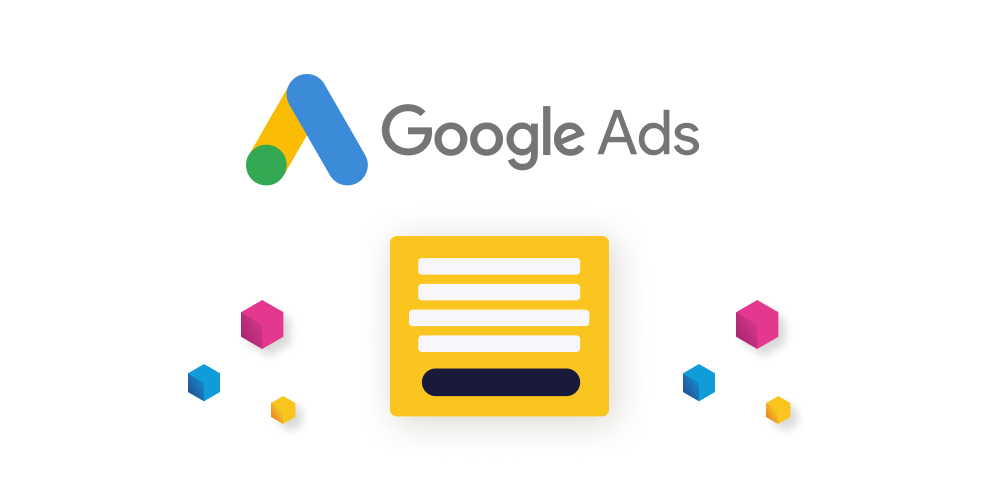Dynamic Search Ads vs. Responsive Search Ads: Choosing the Right Strategy


Responsive Search Ads are now the default ad type for Search campaigns in Google. But what does this mean for your Google Ads performance? Wondering which ad type is better for your digital marketing strategy? We’ve got you covered.
As you probably already know, Responsive Search Ads (RSAs) have replaced Expanded Text Ads (ETAs) in Google Ads campaigns. While Google Ads will still serve your Expanded Text Ads, you’re no longer able to create new ads or edit existing ones.
This means that Responsive Search Ads are now the default ad type for Search campaigns in Google. But what does this mean for your Google Ads performance?
There’s no data to suggest that the performance of your Expanded Text Ads will drop, but without the ability to optimize existing ads or create new ones (for seasonal offers, new products, etc.), there’s a chance it might.
With this in mind, Google has been pushing advertisers to switch to Responsive Search Ads, claiming that the ones who do can achieve up to 10% more clicks and conversions.
But did you know that RSAs are not the only ad type that you can make use of in Google Ads?
Dynamic Search Ads (DSAs) are a beginner-friendly ad type that use your website content to target your ads, saving you time when creating your ad campaigns.
Wondering which ad type is better for your digital marketing strategy? We’ve got you covered.
This guide will explain everything you need to know about the differences between Dynamic Search Ads and Responsive Search Ads, the benefits of each ad type, and which one is right for your business.
Before we dive into the differences, let’s take a quick look at each ad type and how they work.
What are Dynamic Search Ads?
Dynamic Search Ads are a dynamic ad type, ideal for advertisers with multiple landing pages and/or products. Instead of manually creating individual ads for specific keywords, Dynamic Search Ads automatically generate ads based on the content of your website.
This means that when someone searches for terms related to your website's content, Google’s algorithm serves ads that match the user’s search queries.
For example, if a user searches for “eco-friendly running shoes” and this search is matched with a product page on your e-commerce website, the DSA will link to that page.
Benefits of Dynamic Search Ads
Setting up Dynamic Search Ads is generally simpler than traditional keyword targeting. You provide Google with the URL of your website, and their system takes care of the rest.
There are a number of benefits to this automated approach:
- Dynamic Search Ads cover a broader range of search terms which you may not cover in your keyword campaigns, allowing you to reach more people.
- DSA campaigns save you valuable time by creating the ads for you, eliminating the need to write a number of ad headlines and descriptions.
- Marketers can focus more on perfecting their website's user experience and content, as Dynamic Search Ads handle the intricacies of ad creation and management.
- When a customer’s search matches your product or service, Google Ads will dynamically generate an ad leading to the most relevant page on your site, which can help to increase conversions.
Now let’s see how Dynamic Search Ads compare to Responsive Search Ads.
What are Responsive Search Ads?
Responsive Search Ads are a text ad format offered by Google Ads, designed to provide advertisers with greater flexibility and customization in their ad campaigns.
Unlike traditional text ads where advertisers create a single ad with a fixed headline and description, Responsive Search Ads allow advertisers to provide up to 15 headlines and up to four descriptions.
Google’s algorithm tests different combinations depending on the specific search queries, helping your ads become more relevant to what potential customers are looking for, which can lead to higher clicks and better campaign performance.
Benefits of Responsive Search Ads
Even though advertisers have less control over ad combinations, Responsive Search Ads bring a number of advantages for digital marketers:
- RSAs remove the hassle of manually setting up different ad combinations, saving you the time usually spent on creation, testing and analysis.
- Ad combinations are based on a user’s search history, past clicks and search query, allowing you to serve more personalized and relevant ads. You can also tailor your headlines and descriptions to your (potential) customers’ locations, regular locations, or locations of interest.
- RSAs are optimized depending on the user’s device type, meaning you can test shorter headlines and descriptions on mobile devices to help increase your click-through rate.
- Google automatically tests different versions of your ads, quickly understands which combinations drive results, and serves top performers to increase click-through rates.
- More headlines and descriptions mean that you can compete in more auctions and match more search queries, increasing your potential reach.
Dynamic Search Ads vs Responsive Search Ads: A quick comparison
Here’s an at-a-glance look at the main differences between Dynamic Search Ad and Responsive Search Ads:
| Dynamic Search Ads | Responsive Search Ads |
| Provide 2 descriptions but no headlines. | Provide up to 15 headlines and up to 4 descriptions. |
| Google automatically generates headlines relevant to the user’s search terms based on your website content. | Google automatically generates ad combinations based on the headlines and descriptions you provide. |
| Displays ads that are relevant to your entire website or specific pages. | Displays ads based on the user’s search query and your ad copy. |
| Broadens your reach by covering search terms that you’re not already targeting in your keyword campaigns. | Broadens your reach by matching more search queries thanks to the different ad combinations. |
When should you opt for Dynamic Search Ads vs. Responsive Search Ads?
Dynamic Search Ads and Responsive Search Ads are both designed to streamline and optimize your search advertising campaigns. Deciding which one to choose depends on your advertising goals and the nature of your business. Let's explore when to use each ad type:
When to use Dynamic Search Ads
As Dynamic Search Ads are easy to set up and manage, they’re perfect if you’re just starting out with online advertising or don’t have the in-house expertise to launch a more hands-on campaign.
Here are some other reasons why you might use DSAs:
- If you have a large and frequently changing inventory of products or services, such as an online marketplace. DSAs automate the process of creating individual ads for every product or service you offer.
- If your website's content changes frequently, such as new products or seasonal promotions, DSAs can adapt to these changes without requiring you to edit ads manually.
- If you want to discover new keyword opportunities and incorporate them in your main search campaign.
When to use Responsive Search Ads
If you want a bit more control over your ads and would like to test the messaging, a Responsive Search Ads campaign is the way to go. Here’s why:
- While RSAs provide flexibility, you still have some control over what variations are shown. You can "pin" specific headlines or descriptions that you want to be included in the ad.
- RSAs allow you to experiment with different ad combinations to find the most effective messaging.
Combining Dynamic Search Ads and Responsive Search Ads
Luckily, it’s not either/or when it comes to choosing between Dynamic Search Ads and Responsive Search Ads.
Using both DSAs and RSAs together can provide a comprehensive approach to your Google Ads strategy. Experts recommend using RSAs as your “always-on” campaign as you can target specific keywords and optimization happens in real-time.
DSAs, on the other hand, can complement your RSAs campaign by helping to fill in any keyword gaps, which can grow your reach and drive additional traffic to your website.
As with any advertising strategy, it's important to continually monitor and optimize your campaigns based on performance data.
Want to manage all your ad campaigns in one place?
Channable provides the perfect platform for managing your Dynamic and Responsive Search Ads, enabling you to generate, test, and implement effective ads. Sign up for a free trial today.
Want more like this?
Want more like this?
Insight delivered to your inbox
Keep up to date with our free email. Hand picked whitepapers and posts from our blog, as well as exclusive videos and webinar invitations keep our Users one step ahead.
By clicking 'SIGN UP', you agree to our Terms of Use and Privacy Policy


By clicking 'SIGN UP', you agree to our Terms of Use and Privacy Policy
Other content you may be interested in

Want more like this?


Want more like this?
Insight delivered to your inbox
Keep up to date with our free email. Hand picked whitepapers and posts from our blog, as well as exclusive videos and webinar invitations keep our Users one step ahead.
By clicking 'SIGN UP', you agree to our Terms of Use and Privacy Policy











![The State of Digital Content [2026 Edition] The State of Digital Content [2026 Edition]](https://images.bizibl.com/sites/default/files/content-meeting-480.jpg)
